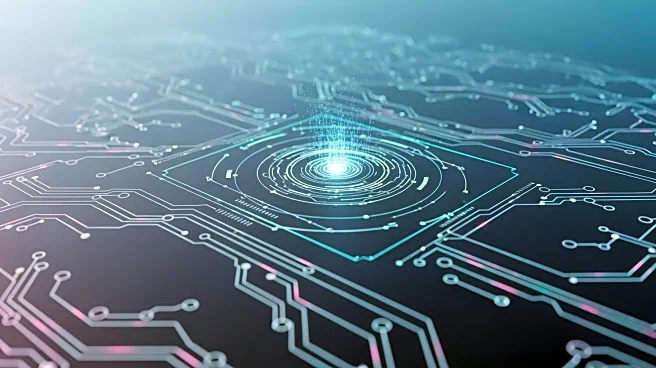What's Happening?
OpenAI has introduced a Workforce Blueprint aimed at guiding policymakers, businesses, and labor organizations in adapting to an AI-driven economy. The Blueprint serves as a framework for coordinated efforts across public and private sectors, emphasizing
the need for investment in workforce education and equitable access to AI tools. OpenAI's analysis of ChatGPT data reveals that AI is currently enhancing productivity rather than replacing jobs, with employees often leading AI adoption in workplaces. The company has launched several initiatives, including the OpenAI Academy and Certifications, to support individuals and organizations in adapting to AI-driven changes. Additionally, OpenAI plans to collaborate with community colleges and technical schools to promote AI literacy in regions where its infrastructure is built.
Why It's Important?
The introduction of OpenAI's Workforce Blueprint is significant as it addresses the growing need for workforce reskilling in the face of rapid technological advancements. As AI continues to reshape industries, the Blueprint aims to ensure that the benefits of AI are widely distributed, preventing economic disparities. By focusing on education and skill development, OpenAI seeks to prepare workers for new roles and career transitions, potentially mitigating job displacement. The initiative also highlights the importance of collaboration between government, academia, and industry to bridge skills gaps and foster economic inclusion. This approach could serve as a model for other organizations and sectors facing similar challenges.
What's Next?
OpenAI plans to host its inaugural Higher Education Guild in San Francisco, focusing on AI's role in teaching and academic research. The company will also celebrate the first anniversary of OpenAI Academy with a public session on expanding AI literacy. These events are expected to further discussions on workforce readiness and the integration of AI in education. As OpenAI continues to develop its initiatives, it will likely seek partnerships with educational institutions and industry leaders to enhance its training programs and job matching systems. The success of these efforts could influence future policies and strategies for workforce development in the AI era.
Beyond the Headlines
The Workforce Blueprint underscores the ethical and social responsibilities associated with AI-driven transformation. OpenAI emphasizes the need for shared responsibility across sectors to ensure that technological advancements align with social and economic inclusion. This approach highlights the potential for AI to not only drive economic growth but also address societal challenges such as inequality and access to education. By fostering a collaborative environment, OpenAI aims to create a sustainable model for integrating AI into the workforce, balancing innovation with responsibility.















